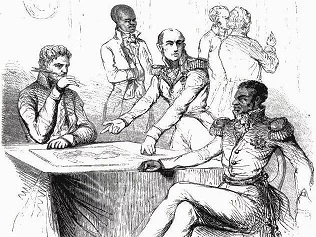While there exists a vast scholarship on attempts to retain and expand French imperial glory, and equally impressive accounts of anti-colonial resistance, there is comparatively little published research on the restructuring of notions of indignation/dignity or national belonging following imperial loss. This presentation explores how so-called “enlightened” societies reconciled declarations of universal freedoms alongside attacks on the dignity of others. At the same time, it asks in what instances human beings draw a line in the sand to demand respect and mutual recognition for and from others? From merchants and plantation owners to rebellious Haitians, French citizens and colonial subjects alike were clearly impacted by these reorganizations of empire. Reactionary foreign policies in the realms of commerce and immigration could reposition French superiority and alter economic and demographic landscapes. While French refugees demanded reparations for lost property after being expelled from colonial Saint-Domingue, Haiti’s new political leadership penned indignant letters of consternation addressed to French aggressors in the early nineteenth century. From reactionary depictions of foreign bodies to new affirmations of Frenchness against former colonial subjects, this presentation interrogates the process of losing empire from the perspectives of both former colonizers and the newly sovereign.
Image: “Traité de Haïti (1825).” The author of the image is unknown. It is in the public domain, reproduced from Victor Duruy, Histoire populaire contemporaine de la France, Tome premier, Paris, Lahure, 1864.


Occurrences
-
Tuesday, October 4, 2022, 11:00 a.m.